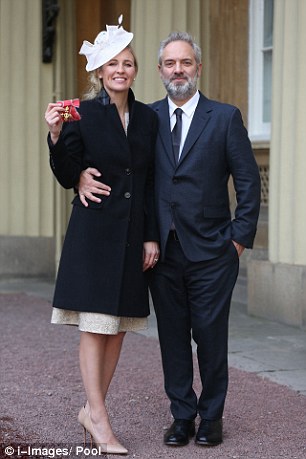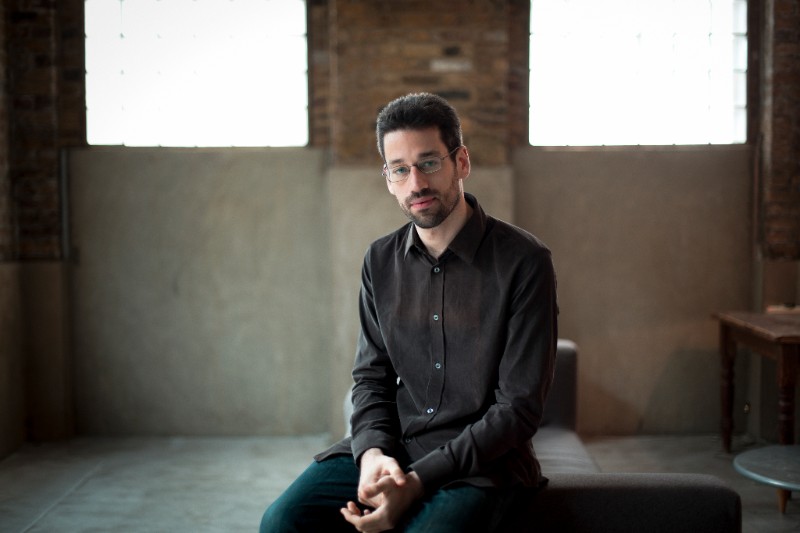As Pianist Brian Ganz moves into the second half of his “Extreme Chopin” quest, he is set to perform both world-famous and little-known works of Chopin — including an early composition written at 11 years of age — in an all-Chopin recital on February 18, 2017. Ganz began his “Extreme Chopin” quest in January 2011 at a sold-out recital in partnership with the National Philharmonic at The Music Center at Strathmore. Ganz has since maintained a packed concert schedule, that may result in his being the only pianist to perform Chopin’s entire oeuvre — roughly 250 works. “As far as I know, Brian is the first musician to attempt to perform all the works of Chopin,” said Piotr Gajewski, National Philharmonic music director. “He is the perfect pianist to take up this challenge—not only because of his great love for the composer, but also because of his intense connection with his audience,” Gajewski said.
At the February 18 concert, Ganz will explore the theme of “Chopin: A Young Genius.” With a total of 22 pieces (with one intermission), the program showcases a wide variety of Chopin’s musical output: nocturnes, études, mazurkas, polonaises, and more. Perhaps most illuminating are the two early Polonaises, written when Chopin was only 11 and 14 years old. As Ganz notes, “These early pieces, juxtaposed with Chopin’s more mature works, perfectly showcase what I call ‘musical gardening.’ It’s a term I like to use to help us understand and appreciate the maturation of a composer. In this instance, we can quite clearly find ‘the seeds’ of Chopin’s musical genius in the Polonaise in A-flat major, written when Chopin was just a child. To continue the metaphor, I'll demonstrate the ‘full flowering’ of his genius with the first polonaise he chose to publish, the C-sharp minor, Op. 26, No. 1. I'll do some musical gardening with mazurkas as well.”
The evening’s program begins with three Nocturnes, Op. 9. These pieces are generally believed to have transformed the nocturne genre from polite background music for social gatherings into a serious art form. Even the most casual classical music listener will recognize Op. 9, No. 2, as it’s one of those pieces that are omnipresent in pop culture (included in the soundtrack to movies like Saturday Night Fever, Blue Lagoon, and Bad Santa). Ganz then gives us a glimpse of the early works of Chopin with two Polonaises (followed by the mature one from Op. 26) and the Variations on a German Air (“Der Schweizerbub”), a charming piece that is almost entirely neglected. Most of these early pieces were published posthumously by Chopin’s friend Julian Fontana, contrary to Chopin's deathbed wish that all his remaining manuscripts be burnt. These seldom performed works offer a window into the workings of Chopin as a budding composer.
The second half of the program begins with three Mazurkas, a Polish country dance that was a recurring comfort to the composer, and finally closes with one of his first masterpieces, the set of twelve Études, Op. 10. The Études, dedicated to Franz Liszt, were widely considered a breakout moment in Chopin’s career. The collection was published in 1833, when Chopin was only 23. “No. 3 in E Major is perhaps the most beloved of the set,” said Ganz, “but all are remarkable for their stunning technical brilliance, originality, and musical range. There’s no finer way to finish the concert than with Chopin’s No. 12. It’s a ferociously beautiful piece, famously referred to as the ‘Revolutionary Etude’ since Chopin supposedly composed it after hearing Russians had invaded his homeland.”
Mr. Ganz is on the piano faculty of St. Mary's College of Maryland, where he is artist-in-residence, and is also a member of the piano faculty of the Peabody Conservatory. He is the artist-editor of the Schirmer Performance Edition of Chopin’s Preludes (2005).



 RSS Feed
RSS Feed
